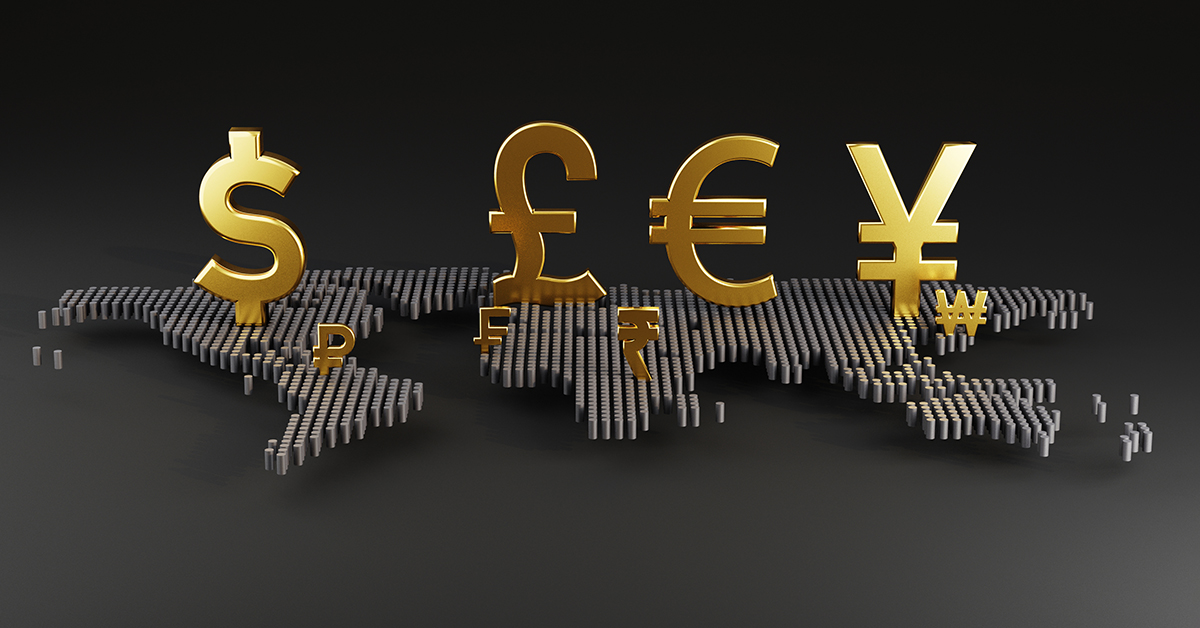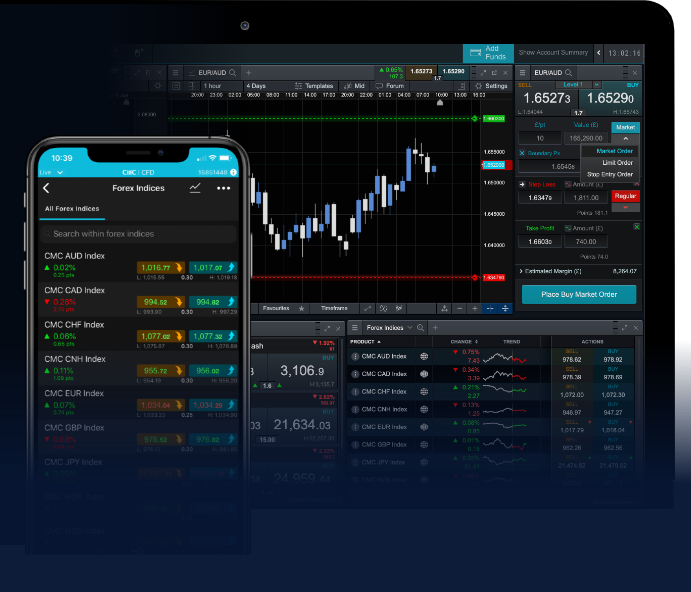Navigating the Forex Currency Trading Landscape

Navigating the Forex Currency Trading Landscape
Forex currency trading, often simply referred to as Forex or FX trading, is the largest and most liquid financial market in the world. With a daily turnover surpassing $6 trillion, it offers vast opportunities for traders looking to speculate on currency movements. If you're considering diving into this dynamic market, it’s essential to grasp its intricacies and make informed decisions. This article provides a comprehensive overview of Forex trading, including strategies, risks, and the importance of selecting the right broker, such as forex currency trading Forex Brokers in South Africa.
Understanding Forex Trading
At its core, Forex trading involves the exchange of one currency for another at an agreed price. The market operates 24 hours a day, five days a week, driven by currency fluctuations that occur around the globe. Traders buy and sell currencies with the aim of making a profit from changes in exchange rates. The Forex market is decentralized, meaning there is no central exchange, and transactions happen over-the-counter (OTC) through a network of banks, brokers, and financial institutions.
The Basics of Currency Pairs
In Forex trading, currencies are traded in pairs. Each pair consists of a base currency and a quote currency. For example, in the currency pair EUR/USD, the Euro (EUR) is the base currency, and the US Dollar (USD) is the quote currency. Traders speculate on whether the base currency will rise or fall in value relative to the quote currency. Currency pairs are generally categorized into three types: major pairs, minor pairs, and exotic pairs.
- Major Pairs: These include the most traded currencies, such as USD, EUR, JPY, and GBP. They are characterized by high liquidity and lower spreads.
- Minor Pairs: These pairs do not involve the US Dollar but include other major currencies, such as EUR/GBP or AUD/NZD.
- Exotic Pairs: This category includes a major currency paired with a currency from an emerging economy, like USD/TRY (Turkish Lira) or EUR/ZAR (South African Rand).
Key Trading Strategies
Successful Forex trading requires a well-thought-out strategy. Here are some popular strategies that traders often employ:
1. Scalping
Scalping is a short-term strategy where traders aim to make small profits on tiny price movements. This strategy requires intense focus and swift decision-making since trades are executed within seconds or minutes.
2. Day Trading

3. Swing Trading
Swing trading is a medium-term trading strategy where traders look to capture price swings or trends over a few days to weeks. This strategy requires a good understanding of market trends and technical analysis.
4. Positional Trading
This long-term strategy involves holding onto trades for weeks, months, or even years, based on fundamental analysis. Positional traders rely on macroeconomic factors and insights to inform their decisions.
Risk Management in Forex Trading
Engaging in Forex trading comes with inherent risks, and effective risk management is crucial for long-term success. Here are some fundamental risk management practices:
- Setting Stop-Loss Orders: A stop-loss order is a predetermined price level at which a trader closes a losing position to limit potential losses. This is essential for protecting trading capital.
- Position Sizing: Determining how much of your trading capital to risk on a single trade is vital. A common practice is to risk no more than 1-2% of the total capital on a single trade.
- Diversification: Avoiding putting all your capital into one trade or currency can help mitigate risk. Diversifying your portfolio can protect you from unexpected market movements.
- Emotional Control: Keeping your emotions in check is essential in trading. Fear and greed can lead to poor decision-making, so it’s important to stick to your trading plan.
The Role of Forex Brokers
Selecting the right Forex broker is one of the most critical steps in your trading journey. Brokers act as intermediaries between traders and the Forex market, and their services can significantly impact your trading success. Here are factors to consider when choosing a broker:
- Regulation: Ensure your broker is regulated by a reputable authority. Regulatory oversight provides a layer of security for your funds and ensures fair trading practices.
- Trading Platform: A user-friendly trading platform with necessary tools and features can enhance your trading experience. Look for brokers that offer demo accounts to test their platforms.
- Spreads and Commissions: Compare the trading costs associated with different brokers. Lower spreads and commissions can lead to higher profitability over time.
- Customer Support: Reliable customer service is essential, especially when you're facing issues or need assistance.
Conclusion
Forex currency trading offers immense potential for profit but comes with considerable risks. Understanding how the market operates, implementing effective trading strategies, and practicing sound risk management are crucial for success in this competitive environment. Additionally, taking the time to choose a reputable broker will enhance your trading experience and increase your chances of achieving your trading goals. As you embark on your Forex trading journey, remain disciplined, stay informed, and continuously refine your approach for the best results.
- ! Без рубрики
- 123
- 1bet5
- 1w
- 1Win AZ Casino
- 1win casino spanish
- 1win fr
- 1win Turkiye
- 1winRussia
- 1x-bet.downloa
- 1xbet
- 1xbet apk
- 1xbet Bangladesh
- 1xbet Casino AZ
- 1xbet casino BD
- 1xbet india
- 1xbet Korea
- 1xbet KR
- 1xbet malaysia
- 1xbet Morocco
- 1xbet pt
- 1xbet RU
- 1xbet russian
- 1xbet russian1
- 1xbet-uzbek.org
- 1xbet1
- 1xbet2
- 1xbet3
- 1xbet32
- 1xbet3231025
- 1xbet4
- 1xbet51
- 1xbet52
- 1xbet61
- 1xbet62
- 1xbet82
- 22bet
- 22Bet BD
- 22bet IT
- 22betde.de
- 888starz bd
- a16z generative ai
- a16z generative ai 1
- Aanbiedingen
- aarhusaffairs.dk
- adobe generative ai 1
- adobe generative ai 2
- ambridgeevents.com
- AU T1_19264 (3)
- austria
- Aviator
- aviator brazil
- aviator casino DE
- aviator casino fr
- aviator IN
- aviator ke
- aviator mz
- aviator ng
- b1bet BR
- bbrbet colombia
- bbrbet mx
- bcg4
- bcgame1
- bcgame2
- bcgame3
- beach5.ch_betonred
- bet1
- bet2
- betwinner1
- betwinner2
- bizzo casino
- blog
- book of ra it
- Brand
- brucebetdeutsch.com
- Canada Casino
- casibom tr
- casino
- casino en ligne argent reel
- casino en ligne fr
- casino svensk licens
- casino utan svensk licens
- casino zonder crucks netherlands
- casino-glory india
- casino1
- casino101
- casino102
- casino103
- casino2
- casino201
- casino202
- casino203
- casino241
- casino242
- casino25
- casino27
- casino3
- casino4
- casino5
- casino6
- casino7
- casinos1
- chat bot names 4
- ciroblazevic.hr
- cityoflondonmile3
- cityoflondonmile4
- comedychristmas.ch
- crazy time
- csdino
- Cursussen
- done
- DONE 240679 Kli 09.10
- DONE 241993 16.10
- DONE 4447 Focus 13.10
- done 7 slots
- drivein.hr
- dxgamestudio.com
- extradition
- focus basari
- fortune tiger brazil
- freevoice.hr
- fysiotek.gr
- fzo.hr
- Gama Casino
- Game
- gameaviatorofficial.com
- gate-of-olympus.gr
- Gegmany Casino3
- Gegmany Casino5
- how does generative ai work
- icestupa10
- icestupa13
- icestupa2
- icestupa3
- icestupa4
- icestupa5
- icestupa6
- icestupa9
- IGAMING
- Indonesia Casino
- italiandocscreening
- ivibetcasino.ch
- kaszino1
- khelo24betoficcial.com
- king johnnie
- lilyedu.uz
- Maribet casino TR
- Maxi reviewe
- mini-review
- Mini-reviews
- mombrand
- mono brand
- mono slot
- Mono-brand
- Monobrand
- monobrend
- monogame
- monoslot
- moon-princess-100.com
- mostbet
- mostbet GR
- mostbet hungary
- mostbet italy
- mostbet norway
- mostbet tr
- Mr Bet casino DE
- mr jack bet brazil
- mx-bbrbet-casino
- my-1xbet.com
- news
- Nieuws
- omitapparel
- ozwin au casino
- Pacifica_bl95un3ifza
- palazzocornermocenigo
- PBN
- pelican casino PL
- Pin UP
- Pin Up Brazil
- Pin UP Online Casino
- Pin Up Peru
- pin-up-casino-giris.net
- pinco
- Pinco türkiye
- PinUp
- Pinup casino
- pınco
- plinko
- plinko in
- plinko UK
- plinko_pl
- pocketoption1
- pocketoption2
- pocketoption3
- Post
- primexbt1
- primexbt2
- primexbt3
- Qizilbilet
- Ramenbet
- Ramenbet
- Review
- Reviewe
- reviewer
- rise-of-olympus-100.com.gr
- sansalvatrail.ch
- schweizbahigo.ch
- Shows
- Slot
- Slots
- Slots`
- space-interiors
- sudstvo.mk
- sugar rush
- sugar-rush-1000.com.gr
- sweet bonanza
- T3_19264_a
- Thailand Casino
- thereoncewasacurl.com
- Trading3
- traiding1
- traiding2
- UK Casino
- ulola.hr
- Uncategorized
- vavada1
- verde casino poland
- verde casino romania
- Vovan Casino
- vulkan vegas germany
- Комета Казино
- Макси-обзорник
- нуы
- сателлиты
- сеточный домен
